by Jenny Rose | May 3, 2018 | Contribution, Emotional Intelligence
Years ago, during a conversation about men, a girlfriend of mine said, “You have to kiss a lot of frogs.” It was the first time I’d ever heard that observation, and I’ve never forgotten the way it made me smile. Now, it’s all over the Internet, but then we weren’t numbed by such a constant bombardment of memes and phrases.
One does have to kiss a lot of frogs in life. Roommates from hell, jobs we hate, the nether regions of those more powerful than we are, all require a certain amount of kissing. Then there are sticky-faced children kisses; big-hearted sloppy dog kisses; and, my personal favorite, sandpaper cat kisses that remove the top layer of skin from one’s nose.

Photo by Andreas Fidler on Unsplash
The central preoccupation of kissing, of course, is the “romantic” kiss. We quickly learn that some kisses are more romantic than others. A lot of our personal kissing history is hurriedly filed away under the label “What Was I Thinking?” and we try to forget about it.
When I really consider it, I realize we spend much more time kissing frogs than anything else. Someone should write a manual. (Poor little frogs. I’m very fond of them. I wonder if they have metaphors about kissing princes in hopes they turn into frogs. It would only be fair.)
Leaving an old, familiar place and coming to a new one reminds me how many frogs are out there, waiting to be kissed, especially in this season when the night shrills with the insistent songs of a variety of species from tiny peepers the size of a thumbnail to enormous bullfrogs. I’ve kissed a lot of frogs trying to make new friends. I’ve kissed a lot of frogs trying to find someone to cut my hair, a massage therapist, a dentist, a doctor, and a health food store.
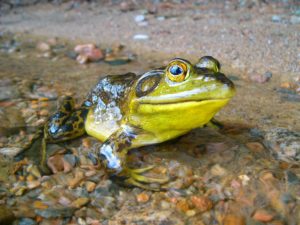
Photo by henry fournier on Unsplash
Kissing frogs takes time, and I get discouraged. I’ve never been comfortable socially. I hate trying to make a connection with strangers. I know intellectually that for every ten times I reach out to another, nine times it will be another dead end, but the tenth time something wonderful will happen. Persistence and patience do pay off.
I’ve spent my life with books. I was reading before Kindergarten (thank you, Richard Scarry, Mom and Dad). Our home was always filled with books. I have a library degree and I’ve worked in a public library and an elementary school library. In my old place, I did volunteer work for a used bookstore run by the local Friends of the Library.
I came to Maine with more than 30 boxes of books, and that was after a severe culling. My partner has at least as many books in his own library. This old farmhouse is positively groaning with our combined libraries, and we’re in desperate need of more shelving. I was disappointed to find a less robust library program than I was used to in the nearest town, and no bookstore of any kind. My first year here, I did hear of a used bookstore in a college town about 30 minutes away, and my partner and I agreed we’d go check it out.

Photo by Jazmin Quaynor on Unsplash
Three and a half years later, I finally made up my mind to stop shillyshallying around and go find that bookstore. I made a date with myself, pulled out maps, informed my partner I was going, dammit!, and we went.
Heaven. Bliss. Home. Shelves and boxes and unstable stacks of books on every surface. Hundreds of books. Thousands of books. Chairs and stepstools and round stools. Old encyclopedias. Children’s books. A huge table covered in a tornado of books.
I headed for the farthest back corner and started working my way forward through nonfiction hardback, plays, poetry, and then fiction.
A long time later, I went in search of the store owner, who was talking with my much more gregarious and extroverted partner in the casual fashion of men getting to know one another. Without preamble, I asked the owner if he had any use for a volunteer experienced in library and bookstore work. We were standing in a room I hadn’t explored yet that looked as though it had been the site of an explosion. Later, I found out a pipe had burst and flooded the place.
He thought this was a fine idea, and said I could start that minute. He also said he’d pay me in books (I made a valiant effort not to drool in front of him). I didn’t want to start that minute, so I declined, and I could tell he thought I didn’t mean it, not really. I said we’d talk. I went back to browsing, smiling to myself.
A couple hours, a heavy box and $145 later, we emerged, happy and grubby. I’d made a date to return, but the owner didn’t think I really would.
On Monday, as promised, I returned precisely on the dot of 12:15 p.m., the time he requested.
He’d hurriedly emptied several bookcases at the time of the flood, and disassembled shelves to get them out of the way. He’d been working to get the shelves back up and wanted me to load them. I asked if I could wipe down the shelves first. A raised eyebrow and surprised agreement. He found a bucket and a rag and I got to work while he searched among towering piles of heavy boxes for the books that belonged on the shelves. This was the general fiction mass market paperback section. He wanted me to weed out science fiction, fantasy, horror and mystery for other sections. He also wanted me to weed out duplicates, choosing the best copy for the shelf.

Photo by Syd Wachs on Unsplash
So began four glorious hours of squatting, bending, kneeling, sorting and alphabetizing. A bookstore invariably reflects the place it’s in. In Colorado, we had a Colorado section, naturally, featuring Colorado authors and artists. We also had a big Western section featuring Louis L’Amour and other Western writers. In Maine, there’s a Maine section and history and biography focused on the founding of the colonies, mills and seafaring. Also, a lot of political nonfiction.
The fiction is heavy on Richard Russo, Bill Roorbach, Annie Proulx and other Maine writers, as well as, of course, shelves of Stephen King.
I emptied box after box. I filled one of the empty boxes with duplicates and started another. I made leaning piles of mystery, fantasy and science fiction for other sections. Customers came and went, stepping around my boxes, bucket and piles, browsing with the quiet intensity of true booklovers. Robert, the owner, moved boxes around, answered the phone and hummed under his breath. I put aside a few books I wanted to take home.
Four hours passed like a happy dream. I asked if I could come again. He said yes, he’d be delighted. We made a date. He’s still not entirely convinced I’ll be there, but that’s okay. He’ll learn to trust me.
Coming out of the door into the spring afternoon, I was exhausted, my back ached, my hands were filthy and I was absolutely happy. I’ve found a way to volunteer again, to make a contribution doing something I love and believe in. I’ve found a place to belong with people I have something in common with.
I kissed a frog and this time it turned into a prince.
I drove home along the Kennebec River, watching the water birds and enjoying the budding trees, pools of blue hyacinths and banks of daffodils. It’s strange, the things that give our lives the greatest meaning. I thought of the frogs in every pool, pond and puddle right now, in every river and stream, singing, peeping, croaking and chuckling. How many women would look at a disordered, slightly down-at-heel used bookstore and see a prince?
I don’t know. I don’t care. I’m happy. I have that excited feeling of anticipation we get when a new door opens. Through books and volunteer work I’ve found dear friends, great jobs, meaning and purpose. Dreams I didn’t know I had have come true.
Not every kiss is a new beginning. Not every frog is a prince. Every book, though, opens onto a world, and a building full of new worlds can’t help but be overflowing with magic, power and possibility. I’m glad I didn’t give up on kissing frogs. Maybe that bookstore has been waiting for me as persistently as I’ve been searching for it.

Photo by João Silas on Unsplash
All content on this site ©2018
Jennifer Rose
except where otherwise noted
by Jenny Rose | Oct 5, 2017 | Emotional Intelligence, Feelings, Love
A few weeks ago I wrote about romance and in that post I confessed that at this point in my life I’m not sure what love actually is. A strange admission from a reasonably intelligent, well-educated, middle-aged broad with two marriages and two children in her history.
Writing that post enabled me to clearly separate romance from love; though I suppose love might include a little romance from time to time. I’m convinced romance is not synonymous with love, however. I began to make a mental list of what love is not, as I often approach things from the back door first. Love is not a synonym for:
- Romance
- Sex
- Slavery
- Control
- Possession
- Obsession
- A suicide pact
- Abuse
- Fear
- Duty
- Obligation
- Enabling
- Obedience
All right. So what is love? My Randall House Collegiate Dictionary says it’s “a profoundly tender, passionate affection for a person” or “a feeling of warm personal attachment or deep affection.” This definition doesn’t satisfy me at all. My rewrite is that love is a feeling of warm, tender connection and deep affection. I don’t think love is always passionate and I don’t like the word attachment. If anything, love implies to me an attitude of nonattachment.
But what about unrequited love? What about failed love or withdrawn love or love as a weapon or a tool? What about the inability to accept love, or feeling unloved though being told we are? What about those who make us feel our love is ugly, twisted, shameful or inadequate?
I’m always playing with words in my head. This week it’s “What is love?” and “What is a crone? and “What are the differences between compassion, empathy and sympathy?” I lie down with those inquiries and wake up with them. I turn them over while I shower, cook bacon, wash dishes, take my morning walk, practice Tai Chi and drive to town. I’m constantly scribbling notes.
I gave a neighbor a lift this morning and asked him to talk to me about compassion, sympathy and empathy. Poor man. He didn’t know what to make of me.
Yesterday, during my frosty morning walk, I dove into a stand of staghorn sumac below the barn and went to visit the spring. This is a daylight spring seeping out of the hill on which the barn and house stand. A long time ago, someone dug a well there, and at one time a pump and tank were installed, along with a system of black plastic outdoor lines to carry water to and from the barn, the garden, and down through the woods to, presumably, crops in the fields below. All the equipment is many decades old now, fallen over and covered with leaves and moss. The well is protected by a round cement cap, much too heavy for me to lift alone (drat!).
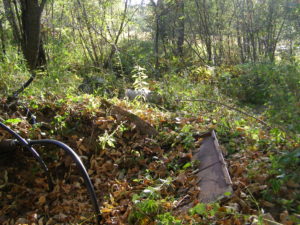
Spring
This spot is hidden in a thick tangle of vine, briar and trees. We rarely go in there, though it’s in close proximity to the barn.
It’s fall and it’s been dry, but the drainage where the spring emerges is clearly marked by rocks and moss. The ground underfoot felt soft, and when I brushed away the leaves I found moist earth. A yard or two below that is mud, and then a trickle of water and then, at the bottom of the hill, a quiet film of water, barely moving, reflecting the tree-laced sky. Right now It’s full of apples dropped from an apple tree that grows alongside it.
As I slipped and slid, tripping over vines and getting scratched by hawthorn and raspberry bushes, feeling the velvety moss coating the rocks and stepping cautiously on rotting wood, it occurred to me that love is like this spring.
I’ve always thought of love as an action verb, something I do to another in exchange for receiving the same. I thought I knew what I meant when I used the word, though I was never challenged to define it exactly. For me it’s been a catch-all term, synonymous with dozens of other, more specific actions: Want, need, desire, honor, trust, respect, care about, listen to, defend, make excuses for, enable, protect, support, believe in, etc., etc.
But what if love is just being? What if it has no object, but just is?
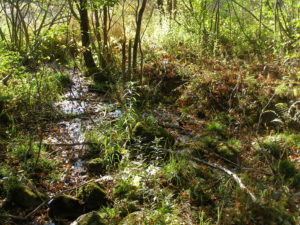
Spring
This little spring is absolutely true to itself. Water drains off the hillside above us and carves a path through the earth and rock until it emerges and runs down the surface at the foot of the hill. We pay no attention to it whatsoever. It’s reliable, predictable and faithful, but not because anyone is looking. Its unobtrusive, quiet presence has created a lush pocket of life, a complex system of plants, fungi, animals and insects, but ten yards away on the open hillside it’s invisible.
What if I make a choice to allow my feeling of love to run through my life in the same way the spring runs through and over the ground? What if I carry within me a wellspring, a hidden cleft, moist, fertile, filled with life, rich in sensuality, simply because it’s an expression of self? If others find their way to it, sit a while, bathe, drink, and allow it to nourish and refresh them, they’re welcome. If others can’t see it, or don’t value it, or dislike the perfume of rotting wood and leaves or the feel of plush moss under their bare foot, it’s nothing to do with me. Not everyone chooses to make their way through raspberry and hawthorn bushes, after all.
What if I don’t need anything in return because I’m giving nothing away? Perhaps the act of love can be a simple state of being, not a totality, not a hurricane of passion and lust, not a romantic fairytale, not a prison and torture chamber, but a spring, a waterway, a shining thread I can share without depletion. Can I allow it to seep quietly up through the roots of my experience, even if no one else ever finds it, wants it, returns it or deems it acceptable?
Our spring is part of a landscape of field and forest, river, pond and stream, rocky hillside and bog. The landscape contains many forms and embraces many systems of life. Birth and death happen on this land. Disease, erosion and flood happen on this land. Prey and predators carry out their sacred dance of balance here. Blood, bone, fur, feather, antler, musk, urine and feces are all here.
I, too, am a complex system of history, memory, belief, thought and feeling. I do not feel love for everyone and everything. My experience of love is that it’s a wild thing; it seeps up where it will and trickles away without warning, taking no account of rules and expectations. I can’t command it and I don’t choose to hold it back. My love doesn’t need anyone’s reception, appreciation, validation or praise.
Love is. I reserve the right to love as I will. I am the keeper of my own wellspring.
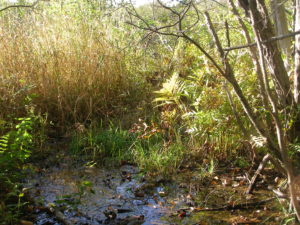
Spring 10/2017
All content on this site ©2017
Jennifer Rose
except where otherwise noted
by Jenny Rose | Sep 14, 2017 | Connection & Community, Emotional Intelligence, Shadows
Power lies beneath the layers at the center, the heart, the core. All avenues of thought, all paths of inquiry lead back to power. What is it? Who controls it? How do we manage and maintain it? Power is the fuel of life. Every relationship is rooted in power. Managing our power is the key to managing our lives at every level, physical, emotional, creative, sexual, spiritual and intellectual.
Narcissists stalk emotional power. They seek it, they lust for it, their voracious hunger and need drive them to control it. They are a yawning abyss that can never be filled because they lack the ability to generate their own emotional power. They will never cease hunting for prey.

Photo by Rain Wu on Unsplash
The prey of the narcissist is carefully addicted and programmed with romance, charisma, and sex into becoming emotional power machines, set and calibrated to take full advantage of finely-gauged specifications of the prey’s need and vulnerability, so as to provide an unending stream of high-quality emotional power on which the narcissist gorges at will: The fine wine of our love, the exotic spices of our passion, the honey of our confusion, the refreshing tang of our jealousy, the nectar of our anguish and the bitter dark chocolate of our despair. Eagerly, we spread our longings, hopes, fears and fantasies before the icy coruscating mirror concealing the narcissist’s true nature. Narcissists manufacture networks of emotional power machines and pit us against one another in order to obtain ever more abundant, complex and complicated fuel. We are not released until we malfunction, and then we’re contemptuously eliminated (but not freed) to make room for a shiny new machine, and we languish until called for again.

Photo by Gary Bendig on Unsplash
The only hope of escape and healing lies in power, the center, the heart, the core beneath the layers. We must cease to hoard, deny, silence, or give away our emotional power. We must claim it, excavate it, call it by name, learn the flavor and scent of it. We must weep with it, rage with it, release it in righteous orgasm, create with it, fight with it. We must look through its unclouded eyes and follow it, wherever it takes us. We must pray with it, surrender to it and adore it. We must soar within its rapturous fiery wings and plunge into its healing green water. We must build a cosmos out of our emotional power and fill it with galaxies, adorn it with jeweled planets and sow it with shooting stars.
We must defend our emotional power with our lives, for without it we cannot live. We must seduce and enchant ourselves with the rapture of our own emotional power so we cannot be captivated by the scintillating mirrored eyes of the narcissist, for if we’re captured by those mirrors we’ll find nothing but our enslavement and performance as emotional power machines reflected back to us, and the stench of the charnel house will invade our souls.

Photo by Aimee Vogelsang on Unsplash
We must look in those glittering mirror eyes, look deeply, look well, and say, “Ah, here is my own reflection, my ravishing emotional self, entirely naked and unashamed.” We must say, “No, I will not be your emotional power machine, no, you can give me nothing that wasn’t already mine, no, I name you Narcissist and I know your terrible secret: You are powerless without your prey,” and turn away, dance away with our bountiful bared breasts and strong hips, pressing our lips to our own shoulders with love because we have everything we need, everything we want, as we embrace our own emotional power beneath the layers in our center, in our heart, in our core.
For more information on recognizing, understanding and managing narcissists and their behaviors, explore narcsite dot com, created and written by a narcissist. If you suspect you have had or now have a narcissist in your life, read ‘The Prime Aims’ on that site for clarification. If you are now or have been entangled with a narcissist, seek help and support immediately if you have not already done so. Your life is at risk.
All content on this site ©2017
Jennifer Rose
except where otherwise noted
by Jenny Rose | Sep 7, 2017 | Connection & Community, Emotional Intelligence
I read a blog post a few days ago titled ‘Romance Ruins Real Love’.
The post reminded me of a conversation I had with an old friend some years ago. She said her favorite part of relationship was the first weeks, when everything is romantic anticipation and excitement. I remember how violently I disagreed with that view, though I didn’t say so to my friend at the time.
I never trust romance, because I don’t equate it with love. Even as a child, I was suspicious of princes on white horses. As an adult, I want a relationship that survives the flu, a broken toilet, a week-long power outage, job loss, poverty, a car accident, a road trip, moving house and painting a room together. Anyone can dress up, buy flowers and make a reservation, given adequate time, money and motivation. Anyone can make love with words. Many can show up for a great night between the sheets. Most of life, however, consists of day-to-day challenges, tasks and unexpected stuff that no one can prepare for, and that’s when we find out what we’re made of, as well as what those around us are made of.
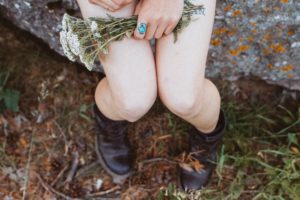
Photo by Jan Phoenix on Unsplash
In spite of all that, I hunger for romance in my life. I always have.
I realized this week I couldn’t come up with a succinct definition of romance. I could write lists of what I find romantic, sensual or sexy, but how do those categories overlap into a central core of what romance actually is? As I sat down to begin this post, I grabbed my Random House College Dictionary and was absolutely shocked at what I found.
Romance: A baseless, fanciful story; a love affair.
Wait, what? What about palpitating bosoms and muscled, shirtless heroes and wine and roses and diamonds? What about bikini waxes and lingerie, high heels, flowers, poetry, songs, movies and messages of love via social media? What about sex?
Is the whole world searching desperately for something that’s not even defined as real? I always thought it was real and attainable. I’ve thought of it as a rare phenomenon, a kind of shining miracle that can’t be bought or captured, coming only to certain remarkable, young, beautiful and deserving people.
I’m ashamed to want romance. It’s not for someone like me, someone flawed, broken, aging, unbeautiful and in many ways unlovable (another of my stories). To dream of romance, to yearn for it, is pitiable and pathetic, and I keep such dreams well hidden, releasing them only in my writing.
I notice all of these thoughts and feelings about romance, all the shame, futility and bitterness associated with one word that means a baseless, fanciful story. Wow.
I paused in writing this post and thought about Random House’s definition for a day. I decided the thing I find most disturbing about this definition is it’s purely subjective. Do we each have a unique baseless, fanciful ideal we’re searching for or trying to create? I’ve written about stories before. If my idea of romance is nothing but a baseless, fanciful story inside my head, it’s not about anybody else. It’s only about me. It’s not something I’ll ever discover out in the real world.
No wonder I haven’t been able to find it!
Huh.
If romance is just another of my stories, then it’s pointless to carry shame around because nobody will participate in my ideal. I’m the only one who can be responsible for my story. Nobody else even knows it, unless I tell it, and this is a private story I’m unwilling to reveal. My story of romance is part of who I am, a piece of vivid and passionate authenticity. It’s what I dance with and write with. I need it. It’s an aspect of myself to be nurtured and cherished, not ignored and denied.
Romance is not about them at all. It never has been. It’s about me.

Photo by Ryan Moreno on Unsplash
This is a place I’ve been before, although this time I’ve followed a different road to get here. When I lived alone in my own home in my old life, I became romantically self-reliant, as it were. I was lonely, but I realize now I was probably the most satisfied romantically I’ve ever been. I burned candles and incense. I bought flowers for myself. I took myself to the movies, to breakfast, out for pizza. I took long, luxurious baths with music and essential oils. I bought my favorite sexy underwear and wore it for my own enjoyment. I gave myself weekends away and night walks to watch the moonrise. I danced naked. I bought art cards I loved and mailed them to myself to mark special anniversaries and days.
Then I came to Maine and began life with my partner, and because I had a man in my life again, I gave up romancing myself. I realized my new relationship is deeper and stronger than romance. I no longer feel lonely. Many of my needs are being met now that have never been met before. Life in central Maine in a 100+-year-old falling-down and leaky farmhouse with very little money is not romantic, however, and my partner is a pragmatic Yankee. He’s about as romantic as a rock. He loves me. I don’t want him to be different, and I recognize he is not equipped to satisfy my hunger for romance.
Well, no. But given the above definition, is anyone? Has my search for romance been in vain because what I long for isn’t out there at all, it’s in here? Was it my responsibility all along?
I say again: Huh!
If I decide to be the best romantic partner I’ve ever had, is that hilarious or creepy?
One thing’s for sure. I won’t have to work very hard to be the best romantic partner I’ve ever had!
Wait, I already am the best romantic partner I ever had, I just took some time off. And now I miss me.
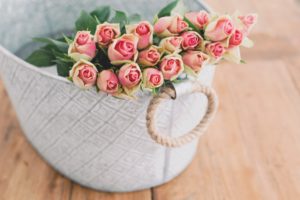
Photo by Roman Kraft on Unsplash
All content on this site ©2017
Jennifer Rose
except where otherwise noted













